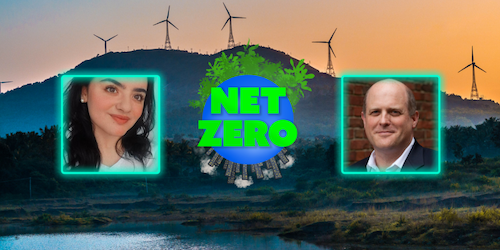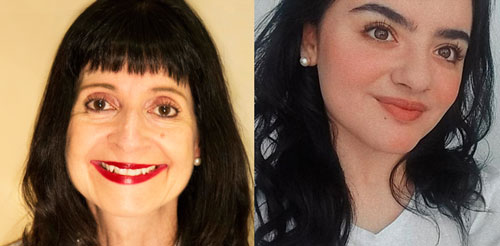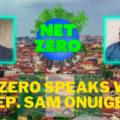这个月, 观众可以放映 净零与丹尼尔施拉格交谈 在星球课堂网络上, 净零系列的最新产品. This film is curated for the Planet Classroom Network by Protect our Planet and Planet Classroom.
Carbon capture and storage technologies have been around for decades and are recognized as effective ways to reduce carbon emissions. So why haven’t they taken off?
丹尼尔·P。. Schrag is the Sturgis Hooper Professor of Geology at Harvard University, Professor of Environmental Science and Engineering, and Director of the Harvard University Center for the Environment. Schrag served on President Obama’s Council of Advisors on Science and Technology. In 净零与丹尼尔施拉格交谈, Climate Activist Nahid Pérez Ayala gets Schrag’s answers on the policies that should take priority for the world to achieve Net Zero.
全球搜索教育 welcomes Climate Activist Nahid Perez Ayala from Mexico.
Nahid, why did you select Professor Daniel Schrag to interview? What inspired you about him?
I selected Professor Daniel Schrag because of his experience in energy technology and policy, including carbon capture and storage, and low-carbon synthetic fuels. 此外, I was interested in his work in geochemistry and climatology.
面试中最让你惊讶的是什么?
I was surprised by his comments about achieving Net Zero and the fact that no country is on track to meet the aspirations they committed to at COP26.
有哪些 3 净零观众从您的采访中得到的主要收获?
I think the first main takeaway is that coal is responsible for a little less than half of global emissions of CO2. There are many countries in the world that rely heavily on coal as a source of energy for electricity generation because it is relatively cheap and abundant. It’s by far the dirtiest fuel in terms of greenhouse gas emissions, but also in terms of conventional pollution and its effects on public health. We discussed how the ambition and profits of some people outweigh the environmental and health impacts of using coal as an energy source.
其次, we talked about how people can come up with various types of budgets for how much fossil fuel we can use to stay under any target like 1.5º or 2º, but it’s just not realistic in terms of the way the world is currently trending.
最后,, Schrag believes we still have a window of opportunity to make positive change, including switching to renewables such as electric transportation. However, people need to change their habits and their demands in order to change the supply.
Thank you Nahid!
ç. M. Rubin and Nahid Perez Ayala
不要错过 净零与丹尼尔施拉格交谈, 现在在 Planet Classroom Network 上放映. This film is curated for the Planet Classroom Network by Protect our Planet and Planet Classroom.







最新评论